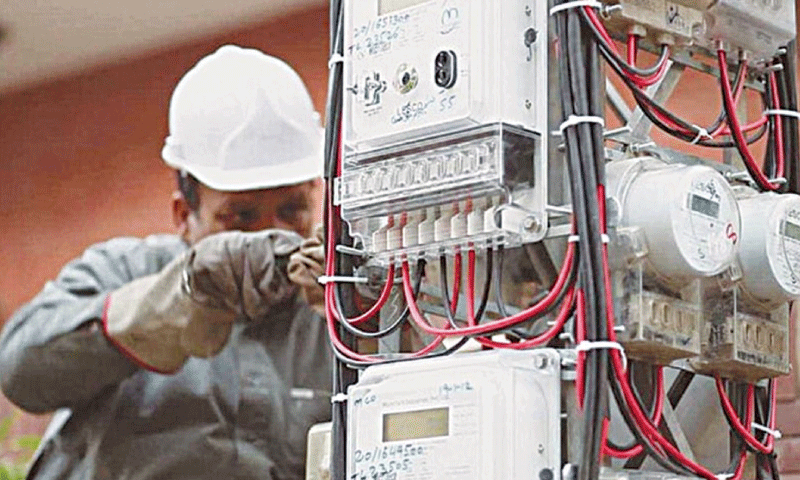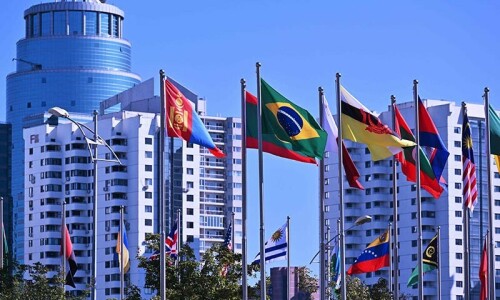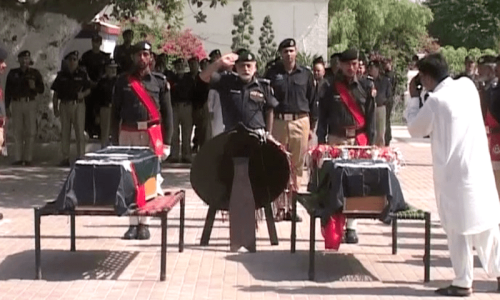THERE are two moments in Pakistan’s history that offer us lessons to understand the historic transition that is now upon us. Both moments saw the military hand over power to a democratically-elected civilian government.
In both cases, it was the Pakistan People’s Party (PPP) to whom power was transferred. But these are the only similarities between the two.
In the first transition, in 1971, the military was weak and the party was strong.
Little surprise, therefore, that following the transition the party was able to put in place a series of far-reaching measures that transformed the nature of the economy, the relationship between the state and the citizenry and the equation between the military and civilian authorities.
The economy was transformed by seizing a substantial portion of its assets, and the enormous expansion of the role of the state in performing economic tasks such as providing price stability and employment.
The relationship between the rulers and the ruled was transformed by the Constitution of 1973, providing fundamental rights for the first time.
The civilian-military equation was turned around from what it had been for the previous decade through the White Paper on Higher Defence Organisation of 1973 that subordinated the military to civilian control.
From defence funding to drawing up strategic threat perceptions, every aspect of defence-related decision-making was subordinated to civilian authorities through the Defence Coordination Committee, staffed with civilian cabinet members and headed by the prime minister.
By the time of the second transition in 1988, the tables had been reversed. This time, the military was strong and the party was weak. A new framework was created to contain and control the extent of the powers being handed over to the civilian government.
The most well-known part of this framework is the infamous Article 58.2(b) of the Constitution, inserted in 1985 prior to the arrival of the Junejo government.
But the military regime’s experience with the three years of the Junejo government taught them that the power to dismiss the assemblies was too blunt an instrument to provide credible influence over the details of policy-making — a nuclear option, so to speak.
The amendment did nothing to control government spending and borrowing during those three years, when the budget deficit had spiralled out of control, financed mainly by large-scale borrowings both domestic and external.
By 1988, the military government had understood that the power to draw up expenditure priorities would still lie with civilian authorities.
Even though every aspect of defence finances, including spending and the power to float defence bonds, had been completely internalised by the military, the civilian government’s prerogative to run persistent deficits and finance them through borrowings had also to be brought under control.
The first half of 1988 brought this realisation to the forefront. It was during these months, during which the budget for the next fiscal year was being drawn up, that the Junejo government made strenuous efforts to restrain military spending, and make the military share in the budget cuts that had become inevitable in order to close the fiscal deficit.
The World Bank also joined in these efforts, and through the sympathetic participation of Moeen Qureshi, advanced the idea that a cut in defence spending combined with a strong loan recovery drive could help close the fiscal deficit.
In August 1988, following the death of General Zia — when it became abundantly clear to the military authorities that power would now have to be transferred to a democratically elected civilian government — a new framework to set limits on the new government was hurriedly put into place.
There were two legs upon which this new framework stood. One was Article 58.2(b).
The other was an IMF programme, known as a Structural Adjustment Facility (SAF) and hurriedly negotiated in the months between August and November, that placed extensive and far-reaching limits on every aspect of government finances: from fiscal targets to budget cuts for the public sector, and to monetary growth.
The only area of government finance for which the facility laid down no criteria or limits was defence spending. Many observers wondered why an interim government, whose only task was to oversee elections, assumed the mandate to sign the country onto a three-year long process of far-reaching reform.
Both these elements of the new framework dominated the subsequent history of the 1990s. One remembers quite vividly the annual visits of the IMF staff missions to evaluate progress on the reforms and the frenetic efforts of the government of the day to explain how and why the performance benchmarks agreed to in the programme had been breached.
This framework formed the box within which the political parties were left to fight it out amongst themselves.
The wide mandate to formulate and execute policy on every front, from economic to foreign affairs, that the party had won in the first transition was now riddled with holes, no-go areas and rigid limits.
Where the party had negotiated the Simla Accord in the wake of the first transition, it was to stay out of the execution of the Kashmir policy following the second transition.
Where the party had moved to seize private sector assets and use them as job creation vehicles after the first transition, it was bound to a programme of privatisation and deregulation in the wake of the second transition.
This is not imply that what happened was right or wrong. There were severe problems with the party government of the first transition.
Its strength, and the lack of any competitors in its early years, no doubt played a role in the dictatorial tendencies that developed within it. But the weakness of the parties in the second transition, and the sharply constricted policy space left to them, no doubt played a significant role in the troubled governance of that era.
The third transition that is now unambiguously upon us is different from the other two in this important respect: this time round, both the parties and the military are weak.
The military’s weakness comes out of its bruising battles through 2007 — to crush the lawyers’ movement, reckon with the insurgency especially in the wake of the Lal Masjid episode, and to deal with the re-entry of the heavyweights into the political arena.
The weakness of the political parties is born of the extreme and murderous factionalism to which they have now succumbed. Where the first transition had one party, the second transition saw the emergence of another.
The third transition sees three parties at daggers drawn and the very likely possibility of a sharply divided assembly.
This time round, there is no clear framework to manage the aftermath, no clear sense of ownership by any of the players involved.
Besides the ‘nuclear option’ of dissolution of the assemblies, which is retained by the president, there is no mechanism to influence policy-making in its details.
Some will celebrate this as a return to the sovereignty of the parliament, as envisioned in the Constitution. Others fear it creates the space for runaway budgets and borrowing, and a renewed cycle of recriminations and struggle that can paralyse policy-making.
This is probably the most troubled transition the country has seen since none of the players involved have the capacity to manage what it will bring.
Khurram Husain is Head of Business and Economic Policy Programming at DawnNews. He can be reached at khurram.husain@gmail.com












































Dear visitor, the comments section is undergoing an overhaul and will return soon.